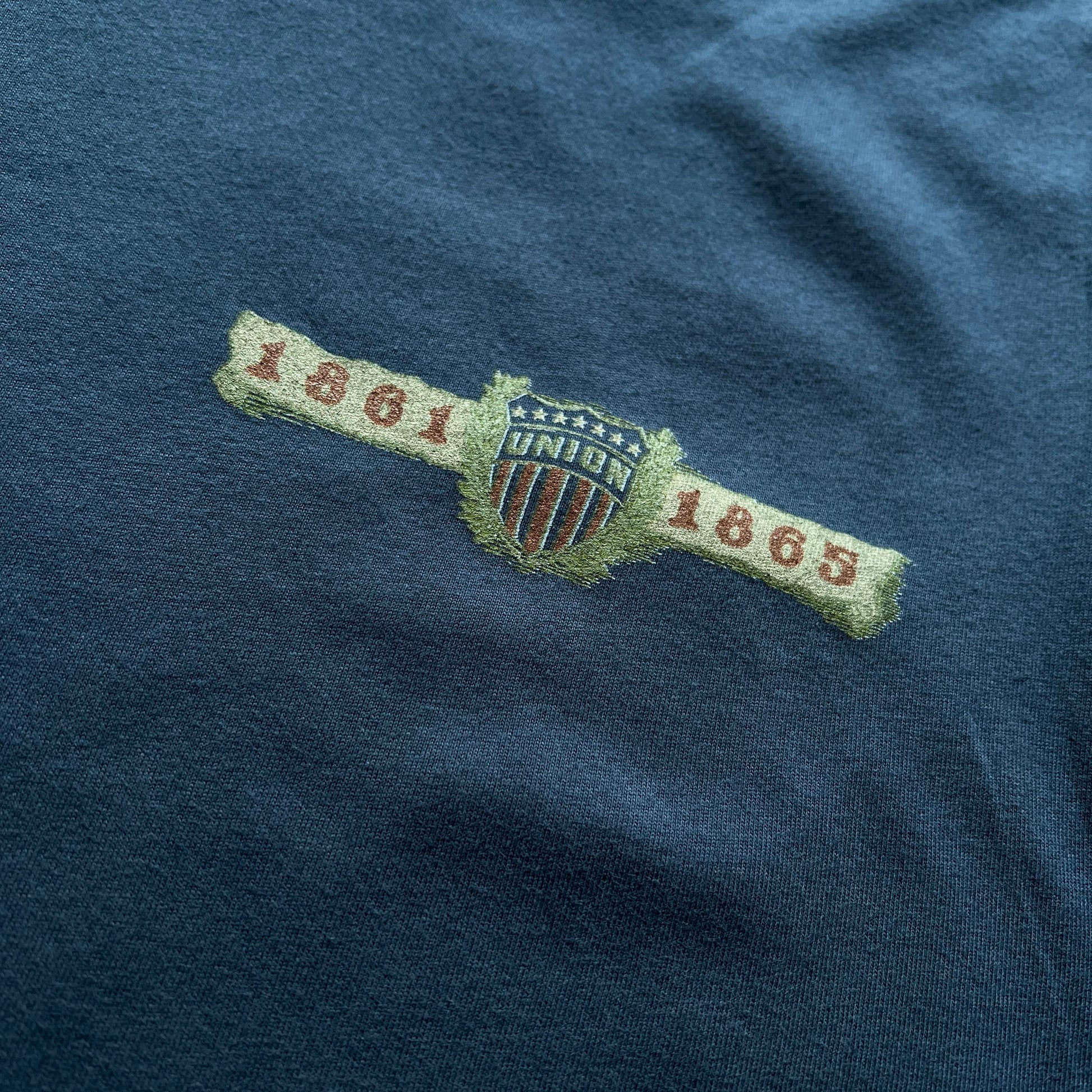
But Halleck soon went to Washington as general-in-chief, and Grant took command of his old army and of William S. In the grand advance of Halleck's armies which followed Shiloh, Grant was relieved of all important duties by his assignment as second in command of the whole force, and was thought by the army at large to be in disgrace. But the Army of the Tennessee had been on the verge of annihilation on the evening of the first day, and Grant's leadership throughout was by no means equal to the emergency, though he displayed his usual personal bravery and resolution. After two days' desperate fighting the Confederates withdrew before the combined attack of the Army of the Tennessee under Grant and the Army of the Ohio under Don Carlos Buell. On the 6th of April 1862 a furious assault on Grant's camps brought on the battle of Shiloh. When, after being virtually under arrest, he rejoined his army, it was concentrated about Savannah on the Tennessee, preparing for a campaign towards Corinth, Mississippi. soon afterwards, but Grant's own fortunes suffered a temporary eclipse owing to a disagreement with Halleck. Grant and his division commanders were promoted to the rank of major-general U.S.V. Halleck with the command of a large force to clear the lower reaches of the Cumberland and the Tennessee, and, whatever criticism may be passed on the general strategy of the campaign, Grant himself, by his able and energetic work, thoroughly deserved the credit of his brilliant success at Fort Donelson, where 15,000 Confederates were forced to capitulate. Early in 1862 he was entrusted by General Henry W. On the 7th of November he fought his first battle as a commander, that of Belmont (Missouri), which, if it failed to achieve any material result, certainly showed him to be a capable and skillful leader. He was shortly assigned to a territorial command on the Mississippi, and first won distinction by his energy in seizing, on his own responsibility, the important point of Paducah, Kentucky, situated at the confluence of the two great waterways of the Tennessee and Ohio (6th of September 1861). After some delay he was commissioned colonel of the 21st Illinois regiment and soon afterwards brigadier-general. To the "call to arms" of 1861 Grant promptly responded. He was living at Galena at the outbreak of hostilities between the North and South. At that time his earning capacity seems not to have exceeded $800 a year, and he was regarded by his friends as a broken and disappointed man. In 1860 he removed to Galena, Illinois, and became a clerk in a leather store kept by his father. Louis, Missouri, earning a scanty subsistence by farming and dealings in real estate.

His reputation in the service had suffered from allegations of intemperate drinking, which, whether well founded or not, certainly impaired his usefulness as a soldier. Dent, and was for a while stationed in California and Oregon, but in 1854 he resigned his commission.

In August 1848, after the close of the war, he married Julia T. He was breveted first lieutenant for gallantry at Molino del Rey and captain for gallantry at Chapultepec. In September 1845 he went with his regiment to join the forces of General Zachary Taylor in Mexico there he took part in the battles of Palo Alto, Resaca de la Palma and Monterey, and, after his transfer to General Winfield Scott's army, which he joined in March 1847, served at Vera Cruz, Cerro Gordo, Churubusco, Molino del Rey and at the storming of Chapultepec. Grant was the best horseman of his class, and took a respectable place in mathematics, but at his graduation in 1843 he only ranked twenty-first in a class of thirty-nine. As he was usually called by his middle name, the congressman who recommended him for West Point supposed it to be his first name, and added to it the name of his mother's family, Simpson. He was christened Hiram, after an ancestor, with Ulysses for a middle name. In 1839 he was appointed to a place in the military academy at West Point, and it was then that his name assumed the form by which it is generally known. His earlier years were spent in helping his father, Jesse R. He was a descendant of Matthew Grant, a Scotchman, who settled in Dorchester, Massachusetts, in 1630.

Military service: Union Army (US Civil War, Gen.)Īmerican soldier, and eighteenth president of the United States, was born at Point Pleasant, Ohio, on the 27th of April 1822. Remains: Buried, Grant's Tomb, General Grant National Memorial, Manhattan, NYĮxecutive summary: Eighteenth President of the United States


 0 kommentar(er)
0 kommentar(er)
